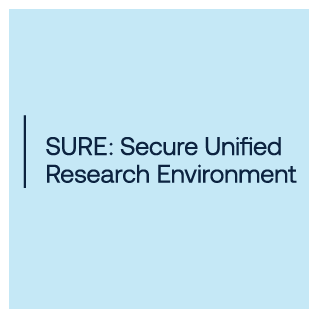
A longitudinal study tracking the wellbeing of children in out-of-home care is among the latest datasets to become available to researchers via the Sax Institute’s SURE (Secure Unified Research Environment) facility ‒ a remote access data laboratory.
The Pathways of Care Longitudinal Study (POCLS), funded by NSW Family and Community Services, is the only large-scale prospective longitudinal study of children and young people in out-of-home care (OOHC) in Australia.
The study began in 2010 and covers 4126 children aged 0-17 years who entered OOHC for the first time between in 2010‒2011. It is the first study of its kind to interview children, caregivers, teachers and caseworkers and link it with administrative data from multiple government agencies including child protection, health, education and justice agencies, to track children’s developmental trajectories over time and identify factors that improve wellbeing.
Secure access to data from anywhere
The Department of Family and Community Services Analysis and Research Principal Analyst Marina Paxman said that while POCLS databases were de-identified, keeping the data secure was vital.
“The access to data to external researchers needs to be carefully managed. SURE can provide FACS with the required data security assurances,” she said.
SURE is a purpose-built facility enabling secure storage, processing and use of sensitive data, enabling researchers to access data remotely, without it being downloaded.
“The POCLS longitudinal data collection will continue over a number of years therefore there will be multiple updates of the databases and version control needs to be well managed. Data refreshes/version control can be well managed with SURE and FACS can be confident researchers are accessing one source of truth,” Ms Paxman said.
She said SURE would also enable different levels of data access and data confidentiality levels as required.
“SURE provides a remote shared data space for data preparation, analysis, writing and standardises information sharing, and replaces each researcher or institution having to comply with data security requirements of government and HRECs [human research ethics committees],” she said.
Ms Paxman added that the facility offered knowledge exchange assistance to find researchers with expertise needed for the study.
Sax Institute Deputy CEO Mr Bob Wells said the POCLS data was a great example of how SURE was supporting secure access to sensitive data to answer important research questions across the human services sector.
“This study, and its current data access plans for broader linkage, provides an important demonstration of the ever-expanding number of datasets that are being accessed by researchers via SURE,” he said.
Study’s international impact
Ms Paxman said the study was expected to make a significant contribution to international scientific literature about children in OOHC, and would have greater explanatory power than other studies because of the large sample size and high retention rate.
“It will also become a valuable research asset to the sector to undertake analysis across a range of OOHC and related policy questions,” she said.
The first wave of baseline data was released last year, and would be analysed by researchers from multiple external agencies in NSW, interstate and overseas, she said. Research papers were currently being written by the study’s academics on placement stability, services and support, family contact and felt security, kinship care, foster care and education.
Find out more
- Read about the Secure Unified Research Environment (SURE)
- Find out moreInformation about the Pathways of Care Longitudinal Study




